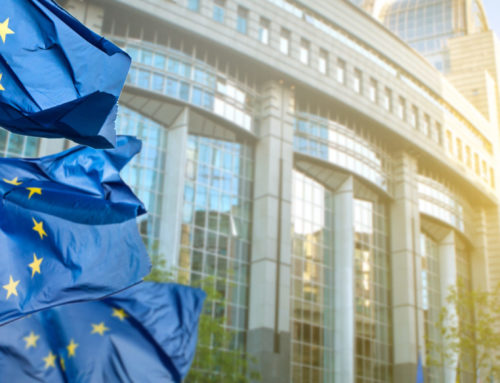According to Ademe, greenwashing is the practice of orienting an organization’s marketing and communications towards an ecological positioning.
Whether it’s the regulator, the consumer or the company, everyone involved in economic life is looking into the issue of greenwashing.
In May 2023, the environmental impact of the Cannes Film Festival came under the spotlight. While the event professes environmental convictions, several associations denounced its carbon footprint. To reduce its CO2 emissions – 80% of which are generated by guest travel and accommodation – the Festival financed environmental projects by purchasing carbon credits from the firm South Pole. However, in early 2023, the NGO Follow the Money published an investigation implicating the credit seller: the firm was accused of grossly overestimating the rate of CO2 emissions compensation for a forest preservation project in Zimbabwe. As a result, although the Cannes Festival was advertising its efforts to preserve the forest on the shores of Lake Kariba, the credits purchased would in fact have had a derisory impact. As a result of these revelations, the festival management has terminated its partnership with South Pole.
This high-profile rout highlights a practice that is now the focus of much attention: “greenwashing”. According to ADEME, greenwashing is the practice of orienting an organization’s marketing and communications towards an ecological positioning.
Whether it’s the regulator, the consumer or companies seeking to protect themselves against the reputational risk and financial impact of the scandals associated with it, all players in economic life are looking into the issue of greenwashing.
In this article, we describe for you the many forms of greenwashing, the consequences of being caught out, and the regulatory pressures on companies and the financial sector. To help you make the right decisions, we also provide an overview of initiatives to keep you on track.
The so-called “sweep” operation is designed to detect breaches of EU consumer protection legislation in online markets.
The European Commission indicated […] that, in 42% of cases, the claim could be false or misleading and could therefore constitute an unfair commercial practice under current legislation.
From misleading messages to omissions, the European Commission is cleaning up its act.
European and French legislation are taking steps to control the threat of corporate “greenwashing”.
The Green Pact for Europe is accompanied by the need to reduce the risk of greenwashing.
Launched each year by the European Commission and the relevant national authorities, the so-called “sweep” operation detects breaches of EU consumer protection legislation in online markets. In 2020, the operation focused for the first time on greenwashing practices. Of the 344 dubious environmental claims on company websites analyzed :
- In 57% of cases, the information provided was not sufficient to enable consumers to assess the accuracy of the claim.
- In 37% of cases, the claim included vague statements such as “environmentally friendly” or “sustainable”, intended to give consumers the unsupported impression that a product had no negative impact on the environment.
- In 59% of cases, the operator had not provided easily accessible evidence to support his allegation.
- 7 claims stated that the good or service had been approved or authorized by a public or private body, when this was not the case. This practice is blacklisted under the Unfair Commercial Practices Directive (UCPD).
Following this assessment, the European Commission indicated that it had reason to believe that, in 42% of cases, the claim could be false or misleading, and could therefore constitute an unfair commercial practice under current legislation.
On January 17, 2024, the European Parliament adopted a directive banning misleading information that promotes greenwashing.
To encourage consumers to consider the durability of the products they buy, the directive also introduces the obligation to make warranty information more visible.
Building an uncompromising legal framework to counter the risk of greenwashing.
Faced with the extent of more or less voluntary greenwashing practices, legislators are getting organised. Solutions against greenwashing are emerging: as the European legal framework was previously non-existent, in early 2024 the European Parliament adopted a directive banning greenwashing and misleading product information.
By amending the Unfair Commercial Practices Directive (UCPD), the EU aims to protect consumers against misleading commercial practices and help them make better choices when shopping. The new law adds certain commercial practices linked to greenwashing and early product obsolescence to the blacklist of prohibited unfair commercial practices:
- The use of generic and vague environmental claims when the excellent environmental performance of a product or professional cannot be demonstrated.
- The use of sustainability labels that are not based on an official certification system or established by public authorities.
- Any claim that a product has a neutral, reduced or positive impact on the environment thanks to a system of emission compensation.
- Any environmental claim concerning a product as a whole, when in reality it concerns only one aspect of the product.
- Unsubstantiated durability claims, incentives to replace consumables earlier than necessary, and presenting a product as repairable when it is not.
To encourage consumers to consider the durability of the products they buy, the directive also introduces the obligation to make warranty information more visible. Products with an extended warranty period will be highlighted by a European label.
Once the directive has been adopted by the Council and published in the Official Journal, Member States will have 24 months to transpose it into national law.
Companies wishing to communicate their ecological practices will have to comply with a new European framework.
The European Commission is planning faster verification for certain claims and products.
[En France], as of 1st January 2023, companies incorporating carbon-neutrality claims into their advertising on TV, the internet, print media or any packaging are obliged to prove it.
Advertisers are now required to publish “a summary report describing the carbon footprint of the product or service being advertised”.
How can companies avoid the risk of greenwashing?
In Europe, as in France, priority is being given to harmonising the reference framework to avoid the risk of greenwashing in environmental communication.
At European level.
A directive on environmental claims is expected to complement the DPCD. In February 2024, the Internal Market and Environment Committees adopted their position on the rules for validating companies’ environmental marketing claims.
This directive will clarify the information required from companies to justify their environmental declarations. Companies wishing to communicate on their environmental practices will have to comply with a new European framework:
- All environmental claims must receive official approval before they can be used in a company’s marketing.
- An accredited auditor will assess the allegation within 30 days.
- Companies breaching these rules will be liable to penalties: loss of public contracts, loss of revenue, fines of at least 4% of annual sales.
The European Commission is planning faster verification for certain claims and products. The aim is to make these claims reliable, comparable and verifiable throughout the European Union. According to the February agreement, micro-businesses will not be affected, and SMEs should be given an extra year to implement these requirements. This project will be taken up by the new Parliament after the European elections in June.
In France.
In April 2022, the government published an implementing decree aimed at framing communication around “carbon offsetting and carbon neutrality claims in advertising” as part of the Climate and Resilience Act of August 22, 2021. Since January 1, 2023, companies incorporating carbon neutrality claims into their advertising by asserting that a product or service is “carbon neutral”, “zero carbon”, “with a zero carbon footprint” or “fully offset” on TV, the internet, in print media or on any packaging have been obliged to prove this.
Advertisers are now required to publish “a summary report describing the carbon footprint of the product or service being advertised and the process by which these greenhouse gas emissions are first avoided, then reduced, and finally offset”. This report must present a trajectory for reducing the corresponding emissions over at least 10 years. In addition, this summary document must be accessible via a link on the advertising material or packaging of the product or service concerned.
From January 1er 2023, article 13 of the law on the fight against waste and the circular economy also prohibits the use of generic claims such as “biodegradable” or “environmentally friendly”.
The risk of greenwashing in the financial sector can take many forms.
In March 2020, the AMF published a doctrine on investor information, the aim of which is to combat greenwashing and ESGwashing.
The financial sector is also making the fight against the risk of greenwashing a priority.
The risk of greenwashing in the financial sector can take various forms, such as the overuse of sustainability vocabulary, the use of responsible investment labels with lax criteria, communication on exclusion policies that don’t really narrow down the investment universe, or the lack of transparency on the non-binding nature of an extra-financial analysis methodology.
Aware of this risk, in March 2020 the Autorité des marchés financiers (AMF) published a doctrine on investor information, the aim of which is to combat greenwashing and ESGwashing. Since its application in March 2021, any manager planning to integrate ESG into a fund’s sales literature, regulatory documentation or name must meet precise criteria and present measurable and meaningful objectives.

The European Securities and Markets Authority (ESMA) has identified a risk of increased greenwashing, and would like to do something about it.
Increased pressure in an increasingly restrictive regulatory framework to combat greenwashing.
The SFDR regulation also imposes high transparency requirements from 2021, but leaves it up to asset managers to define the methodology by which they measure the sustainability of their portfolios. The European Securities and Markets Authority (ESMA) has identified a risk of increased greenwashing and would like to do something about it. In February 2022, ESMA unveiled its Sustainable Finance Roadmap 2022-2024; one of its three priorities is to combat greenwashing and promote transparency. The regulator wishes to precisely define the phenomenon of greenwashing and ensure clarity and harmonisation of SFDR, Taxonomy and CSRD regulations.
In 2022, the three European financial supervisory agencies also launched a call for evidence dedicated to greenwashing: the European Banking Authority (EBA), the European Insurance and Occupational Pensions Authority (EIOPA) and ESMA gathered information on the main characteristics associated with greenwashing. This study has enabled an initial common definition of greenwashing to be sketched out: “any practice presenting sustainability-related claims, statements, actions or communications that do not clearly and accurately reflect the underlying sustainability profile of an entity, financial product or financial services.” In its progress report on greenwashing, ESMA clarifies its definition and provides valuable examples for asset managers keen to communicate on ESG while avoiding greenwashing.
The scandal at German asset manager DWS, a subsidiary of Deutsche Bank, has put this risk and its reputational consequences at the top of asset managers’ agendas.
The risk of greenwashing can have serious consequences if you’re found at fault.
In March 2022, the U.S. Securities and Exchange Commission (SEC) announced that it was giving priority to exposing investors’ exaggerated claims regarding ESG performance and publicity. In May, the SEC fined BNY Mellon Investment $1.5 million for misrepresentations that all investments in certain funds had undergone ESG assessments. On November 22, Goldman Sachs was fined $4 million for marketing ESG-labeled products despite significant shortcomings in the ESG research policies and procedures of its investment selection and monitoring process.
In September 2023, the U.S. regulator tightened its anti-greenwashing policy by amending its “Names rule” on fund names. From now on, ESG thematic funds must ensure that at least 80% of their investments comply with their names. The aim of this anti-greenwashing solution is to ensure that investments match the sales pitch, and to prevent a fund’s name from misleading the end investor.
The risk of greenwashing has also hit German asset manager DWS, a subsidiary of Deutsche Bank, hard. The asset management company was raided in June 2022 as part of a fraud investigation into investments sold as more sustainable than they actually were. The CEO of DWS was forced to resign, and the subsidiary retroceded by reducing the value of its ESG portfolio from 459 to 70 billion euros. In September 2023, the SEC fined DWS $19 million for its misleading ESG communications to investors in its US mutual funds between 2018 and 2021.
To separate the wheat from the chaff, regulators are calling on investors to carefully read the regulatory and marketing documentation provided by fund managers.
What are the solutions to greenwashing, and what reliable tools can you consult to get a clearer picture?
To separate the wheat from the chaff, regulators are calling on investors to carefully read the regulatory and marketing documentation provided by fund managers. They can also turn to recognized initiatives to ensure the reality of sustainability claims:
- The ClimateAction100+ initiative assesses the transition plans of companies with the highest greenhouse gas emissions, and helps detect greenwashing.
- The Transition Pathway Initiative examines the readiness of companies to make the transition to a low-carbon economy.
- The Science Based Targets initiative offers recognition to companies that set clear, science-based targets for reducing their carbon footprint.
- The Carbon Disclosure Project evaluates the transparency and environmental performance of companies and public bodies, based on the recommendations of the TCFD.
- The UN Global Compact website provides access to annual reporting by signatory companies on their progress towards the 10 Global Compact principles.
- The Principles for Responsible Investment website provides access to the annual reports of signatory asset management companies on their responsible investment activities.
- The gradual entry into force of the European SFDR, Taxonomy, CSRD and CSDD regulations should also provide investors with clearer, more transparent, comparable and verifiable information on sustainability claims.
To separate the wheat from the chaff, regulators are calling on investors to carefully read the regulatory and marketing documentation provided by fund managers.
Weapons against the greenwashing trap: education, support and critical thinking.
For in-house training, companies can call on associations such as Fresque du Climat, which offers workshops and training on the subject. The French Environment and Energy Management Agency (ADEME) also has an anti-greenwashing guide freely available on its website. This tool is a self-assessment guide for communication messages aimed at people wishing to promote the ecological qualities of a product or service, or an organisation’s sustainable development approach. For a better understanding of the issues involved in anti-greenwashing legal frameworks, the United Nations Environment Programme’s report “Regulatory Frameworks to Combat Greenwashing” is a good guide.
Are you looking for personalised support to anticipate the new regulatory requirements on greenwashing and integrate them into the management of your company? We are here for you.
Notes and references:
[1] “Screening of websites to combat ‘greenwashing’: half of environmental claims are not supported by evidence”, European Commission
[2] 2020 – sweep on misleading sustainability claims, European Commission
[3] Annex I “Commercial practices deemed unfair in all circumstances”, Directive 2005/29/EC of the European Parliament and of the Council of 11 May 2005, European Commission
[4] “Greenwashing: the European Commission proposes a European legal framework for environmental claims”, Gossement Avocats
[5] Proposal for a Directive of the European Parliament and of the Council amending Directives 2005/29/EC and 2011/83/EU, European Commission
[6] Public consultation: “Environmental performance of products and companies – obligation to substantiate claims”, European Commission
[7] Decree No. 2022-539 of 13 April 2022 on carbon offsetting and carbon neutrality claims in advertising, Journal Officiel
[8] Position – Recommendation DOC-2020-03, AMF
[9] “ESMA prioritises es the fight against greenwashing in its new sustainable finance roadmap”, ESMA
[10] Sustainable Finance Roadmap 2022-2024, ESMA
[11] “ESAS call for evidence on greenwashing, ESMA
[12] “Deutsche Bank’s DWS and allegations of ‘greenwashing'”, Reuters
[13] ESG’s legal showdown: ‘There’s nothing to suggest DWS is a one off’, Financial Times
[14] SEC Charges BNY Mellon Investment Adviser for Misstatements and Omissions Concerning ESG Considerations, SEC
[15] SEC Charges Goldman Sachs Asset Management for Failing to Follow its Policies and Procedures Involving ESG Investments, SEC
About Positiveco
At Positivéco, we see new national and international CSR regulations as vectors for positive growth.
Our job: to improve the readability of your activities for better valuation.
Since 2009, we have been supporting financial institutions, public players, and listed and unlisted companies in the evaluation of their CSR policies, the production of their extra-financial reporting and the implementation of their climate investment and aid projects. Development.
Make an appointment today and find out how to meet the new requirements of economic transparency while serving the project of your company.

Who We Are
With Positivéco, your success is our priority. Since our conception, we have always applied financial and commercial expertise outside the traditional silos, to structure successful and impactful client projects. This improves the visibility of your activities for enhanced profitability and increases your financial valuation.








Contact us now!